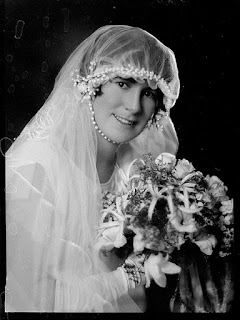We've seen the surprising origins of many wedding traditions on this site, and the origins of the bridal bouquet is no different. This is another ancient tradition that can be traced back to Rome. At that time, brides carried or wore flower garlands because they believed flowers signified new beginnings, fidelity and hope of fertility.
Original purposes of the bridal bouquet
Like many wedding traditions, the origin of the bridal bouquet tradition can be traced back to ancient Rome. For them, like I said, it signified new beginnings, fidelity and hope of fertility. By the Middle Ages bouquets of strong-smelling herbs and spices were carried by the bride for their magical effects to ward off evil spirits, bad luck, and sickness.
Today, the bouquet represents happiness and satisfaction in marriage and the wedding flowers making up the bouquet are thought to have their own special meanings.
In the Middle Ages, the wedding bouquet also became a way to distract female guests who were eager to tear off a piece of the wedding dress for good luck. The bride tossed the flowers to the wedding guests who
believed it would be be a talisman for good luck for the one who caught
it. And so why while they were distracted as they scrambled to get their
hands on the bouquet, the bride ran away with her dress in one piece. Tossing the bouquet is a tradition that is still practiced today!
Vintage wedding bouquet ideas for the modern bride
- Consider wearing a flower garland like the ancient Romans who believed flowers signified new beginnings, fidelity and hope of fertility.
- Make up a bouquet of your favorite wild flowers, herbs and aromatic spices.
I'd love to hear from you. If you have a wedding story, a tradition you'd like me to blog about, a
question, or have something to say, feel free to contact me. And if you enjoy
reading my blog, click "follow" and you'll be notified when a new
post is added to this blog. Thanks for reading.
Photo credits: wikimedia, Victorian Magazine, wikimedia, wikimedia, widimedia



